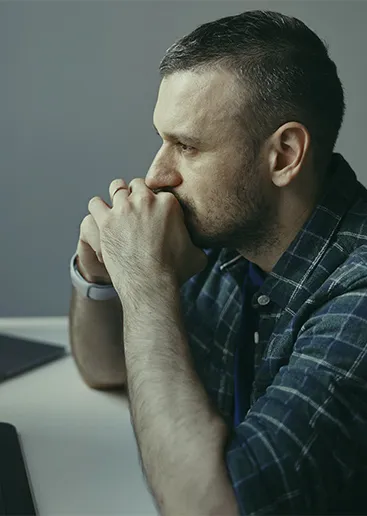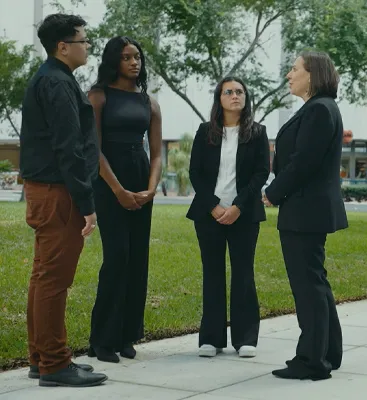MON – FRI (8am - 6pm)
VAWA processing time refers to how long petitioners must wait to receive their VAWA visa. This waiting period can cause anxiety and uncertainty, especially for those still in vulnerable situations. The VAWA visa provides protection, and it’s important to acknowledge that the process can take time due to the detailed review required by USCIS.
By understanding the factors that influence processing times, applicants can better navigate the system and minimize potential delays. Common factors include the complexity of the case, background checks, and USCIS workload. Petitioners should check their case status regularly and work closely with an expert attorney in VAWA to ensure all documentation is complete.


The complexity of a VAWA case plays a significant role in determining the VAWA processing time. Some cases involve multiple forms of abuse, or limited supporting documentation, which can extend the processing time as USCIS carefully reviews each aspect of the petition.
Cases that involve legal issues or require significant amounts of evidence may take longer to resolve, as USCIS will need to verify each piece of information provided. You can check the status of your case by clicking here.
For instance, petitions that include police reports, medical records, or affidavits from witnesses can take more time to process due to the verification steps. Understanding the complexity of your own case can help you manage expectations and prepare for potential delays.

A Request for Evidence (RFE) is issued when USCIS requires additional documentation or clarification on certain aspects of the petition.
This can occur if the initial submission lacked important evidence, or if the information provided wasn’t clear or sufficient. Responding to an RFE promptly and thoroughly is crucial for preventing further delays.
Typically, petitioners are given a deadline to provide the requested documents, which can range from several weeks to months. The faster the petitioner responds to the RFE, the quicker USCIS can resume processing the case. Therefore, ensuring that all necessary documents are included in the initial submission is key to avoiding RFEs.
One of the best ways to reduce VAWA processing time is by ensuring that all documentation is accurate and complete before submitting the petition. Missing or incomplete information often leads to RFEs, which can add months to the vawa processing time.
Responding promptly to RFEs is another critical factor in speeding up the vawa processing time. Delays in gathering additional evidence or clarification can lead to a longer overall processing time. Petitioners should prioritize responding to any USCIS requests as soon as possible.
Timely and thorough responses to RFEs not only help keep the process moving but also demonstrate the petitioner’s commitment to providing all necessary information. This can increase the chances of receiving a positive outcome sooner, reducing the overall waiting time. Working with an immigration attorney can help ensure that the response to the RFE is complete and meets all of USCIS’s requirements. Contact Serving Immigrants for personalized legal support.

Background checks are an essential part of the VAWA petition process, as USCIS needs to verify that the petitioner meets the moral character requirements. These checks typically involve reviewing the petitioner’s criminal history, interactions with law enforcement, and other relevant background information. The thoroughness of the background check can affect the overall processing time, as USCIS must ensure that the petitioner does not have any disqualifying factors.
Background checks can take several months, depending on the petitioner’s history and the availability of records. It’s important for petitioners to be aware that any issues discovered during the background check could result in delays or even denial of the petition. Maintaining a clean record and being upfront about any past legal issues can help speed up the process. Looking for legal help? Serving Immigrants is here to assist you.
The VAWA processing time is divided into different phases, each with varying waiting periods. Below, we explain each phase and its respective waiting time.
The initial stage of the vawa processing time involves gathering necessary documents. This phase typically takes 1-2 months, depending on the complexity of the case and the availability of evidence. Ensuring that all required documents, such as proof of abuse and a genuine relationship with the abuser, are collected helps streamline the vawa processing time.
After the documents are collected, petitioners file Form I-360, officially starting the vawa processing time. USCIS will issue a receipt notice within 1-2 weeks, marking the beginning of the formal review process.
Upon filing, USCIS will issue a receipt notice, which marks the start of the initial review phase. This part of the vawa processing time typically takes 2-6 months. During this period, USCIS reviews the submitted documents to ensure everything is in order.
Any missing information or incomplete forms may lead to delays. To avoid this, petitioners should respond quickly to any RFEs. Keeping track of the status during this phase is important to minimize the overall vawa processing time.
After the initial review, USCIS may issue a prima facie determination, which typically occurs within 3-9 months. This phase allows petitioners to access certain benefits while awaiting a final decision.
A prima facie determination indicates that the petitioner meets the basic eligibility criteria, though it does not guarantee approval. This interim relief helps petitioners during the long vawa processing time, offering access to certain public assistance programs. If you're interested in learning more about Prima Facie, click here.
Once prima facie determination is granted, USCIS conducts a detailed review of the case. This phase of the vawa processing time can take 6-12 months, depending on the complexity of the background checks required. USCIS will verify all evidence, including police reports and medical records, and ensure the petitioner meets the moral character requirements.
Background checks are a significant part of the vawa processing time, as USCIS must ensure that the petitioner has no disqualifying factors. Petitioners should be prepared for this stage to take several months, depending on the specifics of their case.
The final stage of the vawa processing time occurs when USCIS issues a decision, either approving or denying the petition. This phase generally takes 12-18 months. If approved, the petitioner can proceed with applying for a green card. If denied, USCIS will provide reasons for the decision, which may extend the overall vawa processing time if an appeal is necessary.
The approval grants legal protections, allowing petitioners to work and live in the U.S. without fear of deportation.
After receiving VAWA approval, petitioners must apply for lawful permanent residence. This phase typically adds another 6-12 months to the vawa processing time. During this period, petitioners may need to attend a biometrics appointment or an interview, which can further influence the vawa processing time.
Once the green card is approved, petitioners will gain long-term security and the right to work and live in the U.S.
Petitioners should ensure that all the information provided in their petition is accurate and complete. This helps to avoid triggering additional reviews or requests.
If the petitioner has any past legal issues, they should disclose them upfront. Providing relevant documentation to explain these circumstances can prevent unnecessary delays.
Petitioners should ensure that personal information such as addresses and contact details are always up-to-date. This helps to avoid miscommunication or errors.
Consulting with an attorney can be very beneficial. Attorneys can help ensure that all necessary information is provided correctly, minimizing the chances of delays during the background check phase. Contact Serving Immigrants for all your legal immigration needs.
Petitioners should stay in regular contact with USCIS and monitor their petition status throughout the background check phase. This ensures they are aware of any issues or additional requests.
Timely communication and providing thorough documentation are key to avoiding unnecessary delays. Petitioners should be prepared for the background check phase to take several months, and proactive communication can help keep the process moving smoothly.
Some VAWA cases require an interview, which can add to the overall vawa processing time. USCIS schedules interviews to verify the details of the petition and assess the petitioner’s eligibility. Depending on the local office's workload, scheduling availability can significantly impact the vawa processing time.
Petitioners should review all the information provided in their petition, including evidence of abuse, proof of relationship with the abuser, and any other supporting documents. It’s important to be ready to explain the details of the case clearly and accurately during the interview. Working with an immigration attorney can be helpful, as they can provide guidance on what to expect and how to prepare for the types of questions that may be asked.
Petitioners should also gather any additional documentation that may be requested during the interview, such as updated medical records or witness statements. Proper preparation not only helps the interview go smoothly but also demonstrates the petitioner’s commitment to the process.

VAWA petitions can be denied for several reasons, including insufficient evidence or failure to meet eligibility requirements. Understanding the reasons behind the denial is critical for determining the next steps. If the petition is denied, this may extend the vawa processing time, as petitioners must refile or appeal the decision.
If your VAWA petition is denied, you may have the option to appeal the decision or refile the petition with additional supporting documentation. The first step is to carefully review the denial notice, which will outline the specific reasons for the decision. If the denial was due to missing or insufficient evidence, petitioners can gather the necessary documents and resubmit their petition. In some cases, filing an appeal with the Administrative Appeals Office (AAO) may be appropriate, particularly if the denial was due to legal misinterpretation.
Working with an immigration attorney is essential in determining the best approach, whether it’s appealing the decision or addressing the issues in a new submission. Taking prompt action after a denial increases the chances of eventually obtaining VAWA relief, but it’s important to follow the correct procedures to avoid further delays.

In this Frequently Asked Questions section, we address inquiries about VAWA processing time and other related topics.
The average VAWA processing time is between 16 to 24 months. However, this can vary depending on the complexity of the case, background checks, and USCIS workload.
You cannot work solely based on a pending VAWA petition. However, if your VAWA petition is approved, you can apply for work authorization. The processing time for a work permit can take 6 to 10 months.
You can check the status of your VAWA petition using the USCIS case status online tool by entering your receipt number. It's important to regularly monitor your case throughout the VAWA processing time. For a full explanation and a link for checking your case status, click here.
USCIS may require an interview as part of the VAWA processing time. The decision to schedule an interview depends on the specifics of your case and any concerns USCIS may have.